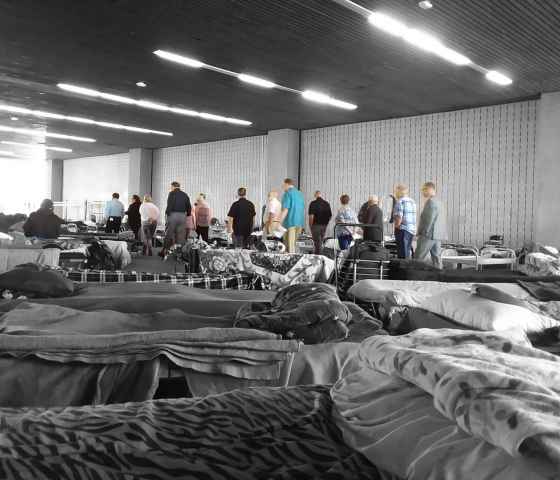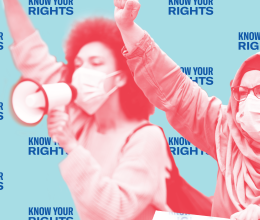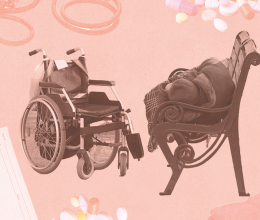For most of us, Governor Newsom's order to stay home during the COVID-19 pandemic is a potentially life-saving inconvenience. For people who are unhoused, it could be deadly, especially when local officials are massively expanding shelters and forcing people into them.
"The way I look at it, these shelters are set up to make us sick," Joe Grubb, a lifelong resident of Orange County told me recently. "We're in an enclosed area with too many people. Blood stains on the bathroom walls, filth. Now coronavirus is going around." Because of his safety concerns, Grubb decided to leave the shelter he was staying at and head out to the streets.
As it turns out, he left just in time. Just a few days ago, the shelter reported the first two confirmed cases of COVID-19 in the Orange County shelter system.
We all deserve a safe, affordable place to call home. But for decades, even as the cost of market-rate housing has skyrocketed, policymakers at all levels of government have slashed affordable housing programs, forcing record numbers of people into mass shelters. And as our recent investigation in Orange County shows, these shelters are often dangerously unsafe and unsanitary.
Shelters are also the perfect setting for the transmission of the life-threatening coronavirus, as Grubb observes.
While the Centers for Disease Control recommends staying away from large gatherings and maintaining a six-foot distance from others, shelters congregate scores, and sometimes hundreds, of people in close quarters, where they share eating, sleeping, and restroom areas. Because mass testing for the virus is not yet available, shelters are likely to mix people who are contagious with healthy people, putting them at high risk of infection. Staff members and cleaning crews can bring the virus into and out of the facilities. Most alarmingly, many people who stay in shelters, including people who have serious underlying medical conditions and older adults, are at higher risk of getting very sick or dying from this illness.
Yet, state and local governments are responding to the crisis with a mix of strategies — including expanding the emergency shelter system. The governor recently signed an order to provide people with leased rooms in motels and hotels and to expand access to homeless shelters. He provided some guidance for health and sanitation standards in shelters, but the guidelines lack the force of law.
Many municipalities are following the state's lead. Orange County, for example, is providing some people with motel rooms while also opening mass shelters at a Salvation Army Thrift Store, the Fullerton park gym, and the Joplin Youth Center. Mayor Eric Garcetti announced that Los Angeles is moving 6,000 people into 43 recreation centers despite deep concerns that they will be "hotbeds" of coronavirus infection.
So how do we avoid this looming disaster? First, state and local governments need to provide people with safe housing that allows them to self-isolate—not homeless shelters with high exposure to risk.
Officials need to pivot immediately from a "shelter-first" model to a "housing first" approach that provides people with affordable, permanent housing as an immediate response to their needs. As this pandemic reminds us, homes are a public health intervention and a form of health care.
Second, until housing is available for all who need it, state and local governments must provide motel and hotel vouchers to people currently living in shelters or on the streets so they can self-isolate in their own rooms with their own bathrooms and sleeping areas.
Finally, we urge state and local leaders to protect people who currently have no alternative but to risk exposure by staying in homeless shelters to establish high, enforceable health and sanitation standards that will mitigate transmission to the greatest extent possible.
It's not too late for policymakers to change course and stem this catastrophe-in-the-making. But the clock is ticking. We need to insist that our leaders do the right thing, and fast, before the virus, which has now infiltrated the shelter system, spreads like wildfire. That means rejecting shelters as a policy response to the pandemic and ensuring that people have access to affordable housing or, at the very least, motel or hotel rooms as safe alternatives.
Joe Grubb is now living in a tent, where he can self-isolate. While he feels safer than he did in the shelter, he yearns for an affordable apartment. He worries about people still living in the shelters, especially older adults and people with health problems. "The officials are trying to get me to accept these shelters as some kind of solution. But it's not going to fly with me," he said. "Everyone needs an affordable home." We hope policymakers are listening.




